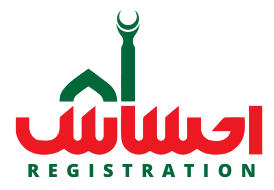School Nutrition Programme
In a important effort to combat child hunger, Punjab Chief Minister Maryam Nawaz Sharif invested the largest school nutrition programme in Pakistan on September 5, 2024, at Government Primary School MC One in Dera Ghazi Khan. This program, firstly rolled out as a pilot project across three southern districts—Dera Ghazi Khan, Rajanpur, and Muzaffargarh—aims to support the health and educational prospects of over 400,000 young students by providing them with daily healthy milk.
More Read :EHSAAS HUMQADAM PROGRAM
Objectives of the School Nutrition Programme
The main goal of the School Nutrition Programme is to address widespread famine and promote health among primary school students. This creativity accepts that sufficient nutrition is opening for thinking and physical development, especially among young children. By providing free milk, the program intends to improve school attendance and meeting, aiming to create a stronger, improved generation.
CM Maryam Nawaz stressed her promise to the well-being of Punjab’s youth, noting that the programme reflects her “motherly affection” for the children, whom she referred to as “VIPs.” She expressed her hope that such efforts will move similar initiatives across other provinces.
More Read :Ehsaas Masawaat Program 8171
Program Overview and Benefits
- Scope and Reach
- Target Regions: The program is originally focused on the districts of Dera Ghazi Khan, Rajanpur, and Muzaffargarh, known for high rates of poverty and malnutrition. Over 3,500 primary schools in these areas will participate.
- Beneficiaries: Around 400,000 primary students will receive daily food support in the form of 175ml milk packets. This interference aims to address lacks and improve overall health outcomes for children in these underserved areas.
- Nutritional Component
The milk provided in the program is refreshed with essential nutrients to support child growth and development. Consuming milk regularly helps meet the alimentary needs of children, improving bone density, mental alertness, and immunity.
- Environmental and Economic Impact
The program also includes a unique environmental aspect: students are encouraged to return empty milk packs to schools. The collected packs will be recovered, and the revenue generated from recovering will be invested into the local schools. This approach not only teaches students environmental blame but also provides additional funds to improve school resources.
Implementation and Monitoring
- Distribution and Monitoring
The milk will be distributed to students daily at school, ensuring that children receive this nutritional extra consistently. Teachers and school managers are tasked with running the sharing and ensuring that each child benefits from the program. Additionally, regular imposts will be conducted to monitor the program’s impact on student health, attendance, and visit in school activities.
More Read :Ehsaas Masawaat Program 8171
- Feedback Mechanism
A feedback system is being well-known to allow teachers, parents, and public leaders to provide input on the program’s success and areas for improvement. This feedback will be active in scaling the creativity, as well as adapting it to the unique needs of each area.
Future Plans and Expansion
CM Maryam has expressed hopes that this initiative will set a practice for other regions and inspire other provincial governments to arrange child nutrition. Although the current program is limited to three districts in its pilot phase, plans are in place to expand it to other areas if successful. In her speech, Maryam Nawaz called upon other provincial leaders to adopt similar measures, stressing that investing in children’s health is critical for the country’s future.
Socio-Economic Impact
The program is expected to have a far-reaching impact, particularly in economically challenged areas:
- Educational Engagement: Well-nourished children are more likely to focus on studies, participate actively, and perform better academically.
- Health Improvements: Addressing famine in young children reduces future healthcare costs and the commonness of diseases related to nutrient deficiencies.
- Community Support and Economic Opportunities: The recycling initiative tied to the program offers small-scale economic benefits to communities while fostering environmental awareness among young students.
More Read :Interest-Free Loans for Punjab Farmers with Kisan Card
How the Program Reflects CM Maryam Nawaz’s Vision
This initiative is part of Maryam Nawaz’s broader strategy to address educational and health disparities within Punjab. The decision to start the program in DG Khan rather than larger cities like Lahore reflects her commitment to uplifting underserved communities. As she noted in her address, “Pakistan may not be a wealthy country, but its future lies in the health and education of its children.” The Chief Minister aims to create more programs that directly improve the lives of the province’s most exposed people.
Conclusion
The Chief Minister School Nutrition Programme marks a transformative step in beginning child starvation in Punjab. By targeting young students, especially in under-resourced areas, the program aims to set a base for constant health and academic success. The success of this creativity could possibly inspire similar nutrition-focused programs across Pakistan, promoting a culture of care and security in future groups.
More Read :Green Tractor Scheme


